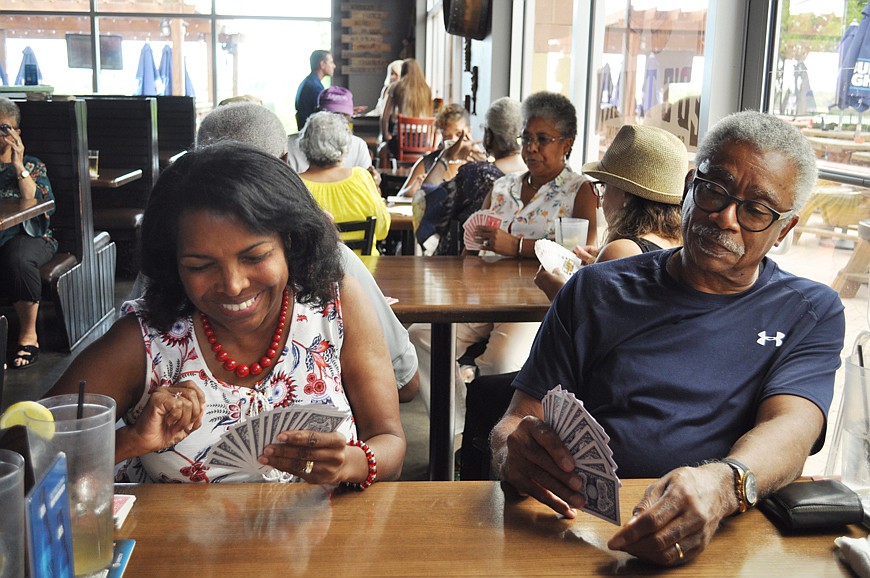- July 2, 2025
-
-
Loading

Loading

Do you ever find yourself picking up your phone and, without really thinking about it, opening an app to check on something ... and then suddenly you’ve entered a digital wormhole in which you lose 30 minutes of your day?
I’m not proud of it, but this happens to me a lot. Even worse, it often happens to me while I’m sitting next to my husband, who is doing the exact same thing.
Little needs to be said about the irony that the social media that supposedly makes us more connected in reality silos us from the human beings sitting right next to us.
There are so many distractions these days that can take us away from really being present and enjoying one another’s company. That’s why I was so enthused when I heard about a group of card players who meet every Tuesday afternoon at Ed’s Tavern to do just that — by playing cards.
Although the game was one I hadn’t heard of, bid whist, learning about these players and their lively, trash-talkin’ games took me back to a time when we didn’t have glowing screens begging for our attention nonstop. Growing up, card games were a staple of family gatherings, filling what otherwise would have been boring hours of waiting for a turkey to roast or being stuck indoors during a rainy afternoon. Instead, there were hotly contested games of spades, (which I still contend my cousins cheated at with secret nods and winks), and the excitement of shooting the moon in hearts, when you’ve got nothing to lose — except the game, of course.
No matter the game, a good round of cards connects us with a sense of camaraderie and competition. The fact that the group at Ed’s gathers so steadfastly is further testament to the power of getting together, enjoying a good game, some good food and drink and, of course, each other.
We all know connecting with our community is important, in whatever form it takes. For parents who homeschool their kids, seeking out opportunities to plug their children into a social network (real, not digital), has led to the formation of several area groups (see Page 62). The result is children who have lots of friends and involvement, even though they don’t attend a school with hundreds of other students every day.
But connecting doesn’t have to be complicated. It can start with just knowing your neighbors (see Page 88). Knowing who has what dog, or enjoys what hobby, helps us form a communal fabric that makes us feel like we’re part of something bigger than ourselves, that we’re not alone.
That’s the real beauty of Lakewood Ranch: It has ample opportunities to connect to a larger community. So, I know it’s hard, but consider this a gentle reminder to keep your eyes open and your phone stowed. You might just be amazed at what you find.
Kat Hughes
Executive Editor